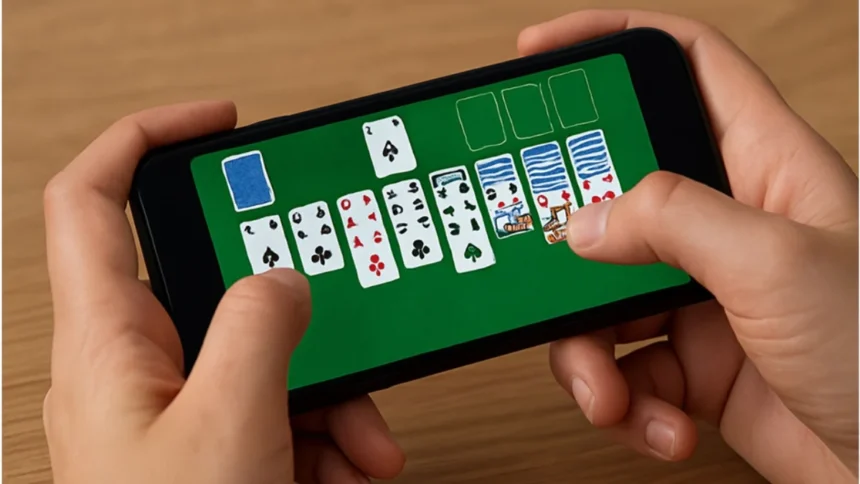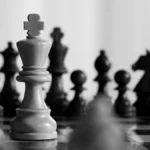When most people envision card games, they see mild living rooms, friendly repartee, or Saturday night entertainment. But beneath the veneer of these simplistic games is a subtle matrix of strategic calculation, mental endurance, and lightning-quick decision-making. Card games such as Gin Rummy, Poker, and Bridge have long run parallel to the competitive, high-stress environments of classic sports. The attitude, preparation, and pressure performance of card game players tend to mirror what we observe in players on the field.
The beauty of card games is that they are intellectual sports. They demand that players read people, change strategies in the middle of the game, and have unshakeable concentration. For instance, knowing how many cards in Gin Rummy are distributed to players (typically 10) is not only a rule but an essential component that informs strategies from the initial play. Knowing what’s on the table, what’s been laid off, and what’s probably retained by someone can significantly impact how one plays the game. This kind of calculated play is nothing different from a chess grandmaster strategizing a few moves ahead or a football coach calling a play based on what the opposing team has done in the past.
The Competitive Advantage: Strategy Rather Than Luck
While card games do contain some degree of chance, top players realize that victory depends far more on strategy than fortune. Similar to competitive athletics, there’s a game plan. Players memorize typical patterns, monitor odds, and even train their minds to stay composed in heated rounds. Strategic card play isn’t a gamble on probability — it’s a management of the manageable, an understanding of the room, and taking advantage of openings.
Consider Poker, for example. Bluffing at Poker is not much different from feinting at basketball or a mock pass at football. The objective is to mislead the competitor, elicit a response, and gain an edge. Achieving that level of deception calls for a keen understanding of people, experience, and timing.
Similarly, in Bridge, players operate in partnerships, requiring synergy, communication, and team-based planning. This mirrors doubles tennis or synchronized swimming, where coordination between partners can determine victory or defeat.
Game Theory and Tactics: Common Ground
Competitive sports and strategic card games both depend heavily on game theory. Players have to predict their opponents’ actions, weigh risk-reward odds, and occasionally give up short-term rewards for long-term setup.
In sports such as football, teams will occasionally deliberately give up a small penalty for field advantage. In card games such as Rummy, players may discard a beneficial card in order to mislead others or lay traps. The idea is always the same: to manipulate the environment of the game to favor the winning outcome.
Even tempo control — a familiar notion in basketball and football — is reflected in card games. The brash attack can wear down the opponent, whereas deliberate, plodding moves can exasperate them into errors. Temporal control of pace and rhythm is an underappreciated but valuable strategy.
Mental Endurance: A Shared Battlefield
Mental exhaustion is a true danger in sports and competitive card games. Players train not only their bodies but also their minds — they learn to cope with pressure, quickly bounce back from failure, and be able to perform at a high level for several hours. The same applies to serious card players.
Long games, particularly Bridge or Poker, demand that players remain mentally sharp for hours. One moment of lapse in attention can be the difference between winning and being eliminated. Here is where the psychology of winning comes into play: self-assurance, emotional control, and toughness are as necessary at the card table as they are on the athletic field.
Visualization, a method employed by many athletes to mentally practice situations, is also prevalent among pros in card games. Imagining possible hands, anticipating moves by opponents, and thinking through outcomes mentally prepare the brain for quick decision-making and pattern identification.
Reading Opponents: The Human Factor
Reading opponents is important in both card games and sports. In boxing, a slight weight shift may indicate an oncoming hook. In Poker, a twitch or glance may indicate doubt or strength. The capacity for reading these and reacting accordingly is a feature of high-level performance.
In Gin Rummy, paying attention to what your opponent is taking and throwing away enables you to make an educated guess about what they’re constructing. That type of pattern detection is used in nearly every sport. Soccer players analyze their opponents’ passing patterns; tennis players notice serves and returns.
This human factor — the mind games, psychological coercion, and emotional warfare — makes both sports and strategic card games so much about the individuals involved as it is about the game itself.
Training, Practice, and Mastery
Sportsmen practice tirelessly, conditioning their bodies and minds. The same principle applies to dedicated card game players. Reciting odds, playing hand scenarios out in their heads, analyzing past games — these are practice sessions, no more or less than batting practice or shooting free throws.
Top card players spend hours with coaches, study recordings of their games, and belong to study groups. The drive for mastery cuts across disciplines because of a devotion to improvement and a desire for competitive greatness.
Ethics, Rules, and Sportsmanship
Competitive worlds require compliance with rules and an unwritten code of behavior. In sports, fouling or being unsportsmanlike can destroy reputations. The same applies in card games, where cheating or a lack of ethics is severely frowned upon.
A respect for the game and one’s competitors is a core tenet in both worlds. The strategy does not involve deception at any price — it involves getting the most out of potential within the parameters of fair play.
Conclusion: More Than a Game
Strategic card games such as Gin Rummy, Bridge, and Poker might seem playful in nature, but they have fundamental dynamics that are as intense and complicated as competitive sports. With intellectual acuity, strategic planning over the long term, psychological toughness, and tactical sophistication, card game players possess many of the same qualities as athletes.
Seeing the fundamental mechanisms of these games — starting from why it is important to know how many cards in Gin Rummy determine the approach of each hand, through to the overall strategic mindset needed to win consistently — suggests a profound congruence between intellectual gaming and athletic sports.
Finally, both universes rejoice at the victory of preparation over fate, of planning over disorder, and of intellect over matter.
ALSO READ: Rayan Ait-Nouri Is Manchester City’s Target Left-Back























